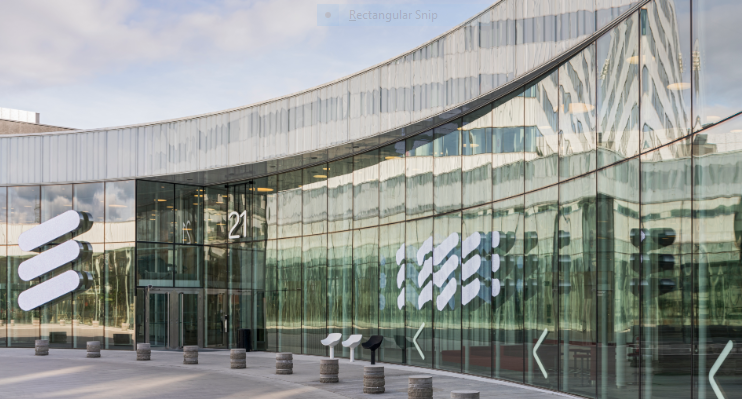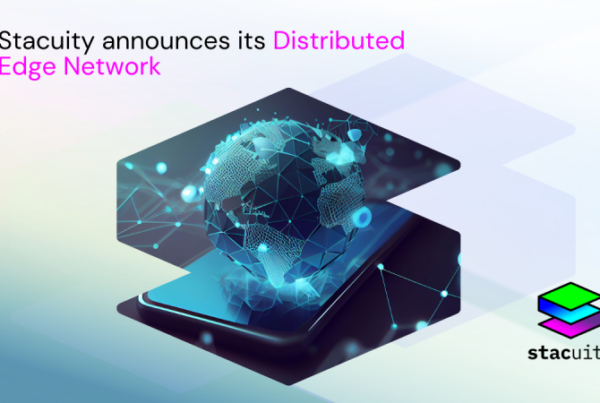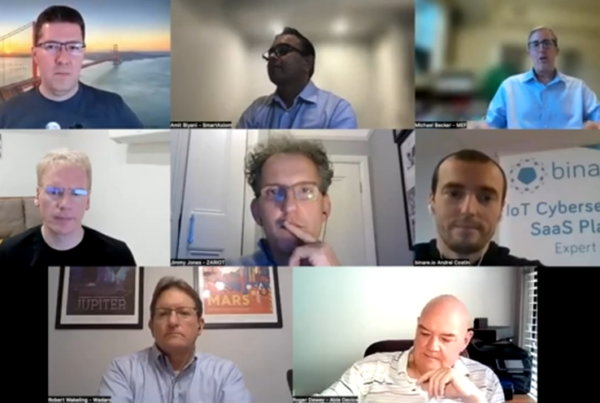MEF Programme Director for IoT Nassia Skoulikariti shares her thoughts on the news that Ericsson plans to sell its IoT business; why they are making the move, how it will impact the sector and what new owners Aeris bring to the table.
Ericsson announced it would sell its IoT (internet of things) business to US-based Aeris. The announcement comes on the heels of poor financial performance from Ericsson in this sector, which the company has stated it plans to let Aeris take over.
Ericsson has recognized that its venture into the rapidly expanding Internet of Things market did not yield the desired outcomes. In the press statement Ericsson indicates the low-margin sector and difficulty in achieving profitability as the main reasons behind the decision.

With other large technology companies abandoning IoT operations, most notably Google and IBM Watson IoT, it seems this shift may become more widespread in the near future. It is evident that IoT requires scale or high efficiency, many of the players in the market fail on both accounts.
Connectivity is an essential factor in the success of IoT, but it’s not the only thing that matters. Value is added to connectivity in management platforms, applications and services. That’s where the real profits are to be made with IoT, so CSPs should focus their efforts there. While connectivity solutions add value to networks worldwide, they’re not necessarily a gold mine – yet.
Ericsson has agreed to sell its IoT business to Aeris, including its IoT Accelerator connectivity management platform and Connected Vehicle Cloud platform. Ericsson’s IoT Accelerator division offers cellular connectivity solutions to enterprise clients and its Connected Vehicle Cloud (CVC) unit – a hosting service for carmakers’ fleet management, telematics, navigation and infotainment applications.
The Swedish firm has reported that its IoT business, forecast to generate net sales of SEK 1.2 billion ($132 million) by 2022, has been a significant contributor to losses in its ‘business area technologies and new businesses division.’
The sale of Ericsson’s IoT division to Aeris has drawn mixed reactions from analysts. While some see it as a positive development for Aeris, allowing them to expand their offerings and gain access to Ericsson’s customer base, others have expressed concerns about the impact to Ericsson’s IoT capabilities and the potential loss of customers. It remains to be seen what the long-term implications of this acquisition are for both companies.“
Ericsson announced that selling its cellular IoT assets will speed up market consolidation in the cellular IoT industry. The move is expected to reduce losses by SEK 0.25 billion ($24 million) every quarter and result in a one-time hit of SEK 1.1 billion ($96.2 million) to its profits (EBIT) during the fourth quarter of 2022, with the majority of it being registered during the first quarter of 2023. Ericsson will acquire a “small stake” in Aeris from this transaction.
The Internet of Things business was not a core part of Ericsson’s operations. The company has a strategy directed primarily through its traditional operator partners. More recently, the company got closer to the enterprise sector with 5G solutions – bolstered by its acquisition of US-based Cradlepoint in late 2020. Ericsson is still involved in the Io market, providing private cellular networks for Industry 4.0, public LTE and 5G airtime for data-intensive tracking and municipal IoT systems.
Aeris is a provider of IoT solutions and services, and the acquisition of Ericsson’s IoT business allowed it to expand its portfolio and capabilities. Aeris, founded in 1996, has already worked with Softbank, AT&T, T-Mobile, and Vodafone, among others. This move will enable Aeris to offer its customers a more comprehensive range of IoT solutions and compete more effectively in the market.
The sale of Ericsson’s IoT division to Aeris has drawn mixed reactions from analysts. While some see it as a positive development for Aeris, allowing them to expand their offerings and gain access to Ericsson’s customer base, others have expressed concerns about the impact to Ericsson’s IoT capabilities and the potential loss of customers. It remains to be seen what the long-term implications of this acquisition are for both companies.
The combined IoT Platform will connect 100 million devices in over 190 countries, and Aeris will take charge of IoT connectivity for 9,400 enterprises following the transaction.
The IoT industry is complex and fragmented and is due for a good shakeup. Consolidation will help minimise fragmentation and create more value in the long term.
It is interesting to highlight what Åsa Tamsons, Head of Business Area Technologies & New Businesses at Ericsson, said: “ and has the right focus, assets, and capabilities to realize the full value creation potential of Ericsson’s IoT business and its strong market presence…”
Aeris CEO Marc Jones highlighted that “Building the best technology to support the success of our customers and drive innovation in the IoT space have always been at the forefront for Aeris. Our intelligent, software-defined IoT network and Ericsson’s leading connectivity management platform will provide the leading IoT technology stack in the industry. We look forward to bringing these new, transformational IoT solutions and Ericsson’s IoT Accelerator and Connected Vehicle Cloud products to our customers.”
The sale of Ericsson’s IoT business to Aeris is a strategic move that will enable both companies to focus on their core strengths and expand their businesses. The sale will enable Ericsson to focus on its core strengths of network, cloud and IT services. At the same time, Aeris will become the leader in providing secure and reliable IoT connectivity services. The move is expected to create synergies between the two companies, allowing them to capture the growing opportunities within the IoT market. Aeris is confident that its expertise in this sector will help it build on Ericsson’s achievements in the IoT space and drive innovation.





